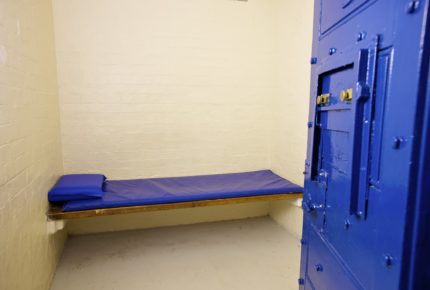

If you have been arrested, or asked to attend a voluntary police interview, you may be wondering what type of questions the police are going to ask you. It is difficult to prepare for the unknown and you are most likely feeling a great deal of anxiety. This article provides a practical guide to police interviews. It explains the different types of police interviews and gives you an idea of what usually takes place during a police interview. It looks at examples of police interview questions, and it also explains the next steps after a police interview. Hopefully it will answer some of your queries, and help prepare you for what is coming, but if you have further questions, information on how to get in touch with a criminal defence solicitor is given at the end.
What types of police interview are there?
There are two types of police interview: an interview that takes place after arrest, and a voluntary police interview.
Interview after an arrest
If you have been arrested for an offence, the police officers at the police station will usually interview you in order to gather information about your involvement in the alleged offence. You do not have a choice as to whether you participate in the interview, but you can choose not to answer questions and exercise your right to remain silent.
Before the interview begins, the police officers will remind you of your right to legal advice and representation. You will then be read the standard police caution:
“You do not have to say anything. But it may harm your defence if you do not mention when questioned something which you later rely on in court. Anything you do say may be given in evidence.”
Voluntary police interview
A voluntary police interview usually takes place at the police station. You will be given advance notice and asked to attend the police station at a certain date and time. Unlike an interview under arrest, you are free to stop participating in a voluntary police interview at any time. You can also choose to leave the police station if you do not want to complete the interview. Just like an interview under arrest, you have the right to have a lawyer present and you will be reminded of your right to legal advice before the interview begins. If you have been invited to a voluntary police interview, it is a good idea to obtain legal representation from a criminal defence solicitor.
Similar to a police interview after you have been arrested, prior to beginning the interview, the police officers conducting the interview will read you the standard police caution. You will then be asked to sign a written consent to be interviewed. Because you are not under arrest, the interviewing officer must inform you that you are free to stop the interview or leave the police station at any time.
Usually a voluntary police interview takes place where the police do not yet have the legal grounds to make a lawful arrest. In order to arrest a person, a police officer must satisfy the test set out at Section 24 of the Police and Criminal Evidence Act 1984 (PACE). This states that in order to make an arrest a police officer must have knowledge or reasonable suspicion that an offence has taken place, is taking place, or is about to take place.
The police officer must also have reasonable grounds to believe that arresting the suspect is necessary. The act includes the following grounds for necessity:
- to enable the prompt and effective investigation of the offence
- to enable the name of the person in question to be ascertained (in the case where the constable does not know, and cannot readily ascertain, the person’s name, or has reasonable grounds for doubting whether a name given by the person as his name is his real name)
- to ascertain a person’s address
- to prevent the person in question
- causing physical injury to himself or any other person
- suffering physical injury
- causing loss of or damage to property
- committing an offence against public decency
- causing an unlawful obstruction of the highway
- to protect a child or other vulnerable person from the person in question
- to prevent any prosecution for the offence from being hindered by the disappearance of the person in question.
Where the police suspect a person of an offence but they do not yet have sufficient evidence to satisfy the reasonable grounds test, they may invite them to a voluntary interview. Another reason why the police may invite you to a voluntary interview is if you appear to be cooperating with their investigation; in this case, it may be unnecessary to arrest you. A voluntary interview can lead to an arrest where:
- evidence emerges during the interview that gives police sufficient grounds to justify an arrest
- you refuse to cooperate with the interview or ask to leave the police station, at which point it becomes necessary to arrest you
What happens in a police interview?
At the beginning of a police interview, the police officers will remind you of your right to legal advice and representation and read you the police caution. The interviewing officers must be satisfied that you are medically fit to be interviewed. If you appear to be unwell or mentally unstable, they must arrange for you to be assessed by a healthcare professional. If you do not speak fluent English, the police must arrange for an interpreter to be present to translate for you.
The interviewing officers must give you sufficient information so that you can understand the nature of the case against you. Whilst the police do not have to disclose all the evidence that they hold against you, they must give you an idea of why you are under suspicion.
You will then be asked questions by the police. The police may show you evidence relating to your case and ask you questions about it. You can ask to stop the interview at any time in order to obtain legal advice.
What are some examples of police interview questions?
It is difficult to generalise as to what questions you will be asked at a police interview, as this depends heavily on the nature of the case and the evidence held by the police against you or someone else.
In the police interview, the police are obliged to ask you questions concerning your involvement in the commission of the offence in question. Some typical questions will include:
- Your whereabouts on a certain date
- Whether you know or have met other individuals who are also under suspicion
- You may be asked to comment on allegations made by the victim. For example, the officer could ask you, ‘Mrs X has told us that you threatened her life on the 3 June. Is this true?’
- You may be shown CCTV or other evidence that shows your alleged involvement in an offence, and asked to comment. Say, for example, you were arrested for a public order offence. The officer might show you the footage of your behaviour, and ask for your comments upon it.
What happens after a police interview?
After the police have concluded your interview, they will usually make a decision in respect of whether to charge you. Depending on the nature of the offence, this decision may be made by the police or they may seek advice from the Crown Prosecution Service (CPS). You will be charged if there is sufficient evidence to meet the ‘charging standard’, which means that the police/CPS assess that there is a ‘realistic prospect of conviction’ (i.e. that you are more likely than not to be convicted should the matter proceed to trial). This is also known as the ‘full code test’. More information on the charging decision can be found here.
If you are charged, the police can either remand you in police custody to appear before the Magistrates’ Court or bail you to appear before the Magistrates’ Court. This depends on the severity of the offence that you have been alleged to have committed, and other factors such as whether you have a fixed address and whether the police consider that you are likely to abscond.
In circumstances where the full code test is not met, but the police are continuing to investigate you as a suspect, you will usually be released either on bail with bail conditions, or ‘released under investigation.’ The police will then continue to investigate the matter and inform you of the outcome.
Where, following the interview, you are no longer under suspicion, you will be released with no further action. This means that you are not being investigated by the police, and you will not be arrested again unless new evidence comes to light.
Where to get further help
If you have been arrested or asked to attend a voluntary police interview, contact Stuart Miller Solicitors today. Our trusted criminal defence team will provide you with thorough advice and representation to give you the best possible chance of having your case dropped before it goes to court. Get in touch today to arrange your free no obligation consultation.
OUR COMMITMENTS TO YOU:
-
Responsive
A legal expert will consult you within 24 hours of making an enquiry.
-
Empathetic
We will always treat you with trust, understanding and respect.
-
Specialised
Your case will be handled by an expert who specialises in your type of offence.
-
Proactive
We will take early action to end proceedings as soon as it is practically and legally possible to do so.
-
Engaged
You will be kept updated on your case at all times. We will provide a named contact available to answer your questions.
-
Caring
We understand this is a difficult and stressful time for you and your family. Our team will support you every step of the way.
-
Tenacious
We will never give up on your case. We fight tirelessly to get you the best possible outcome.
